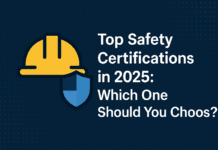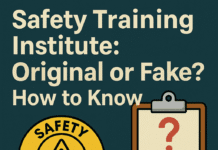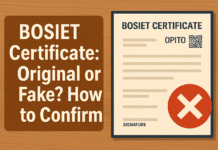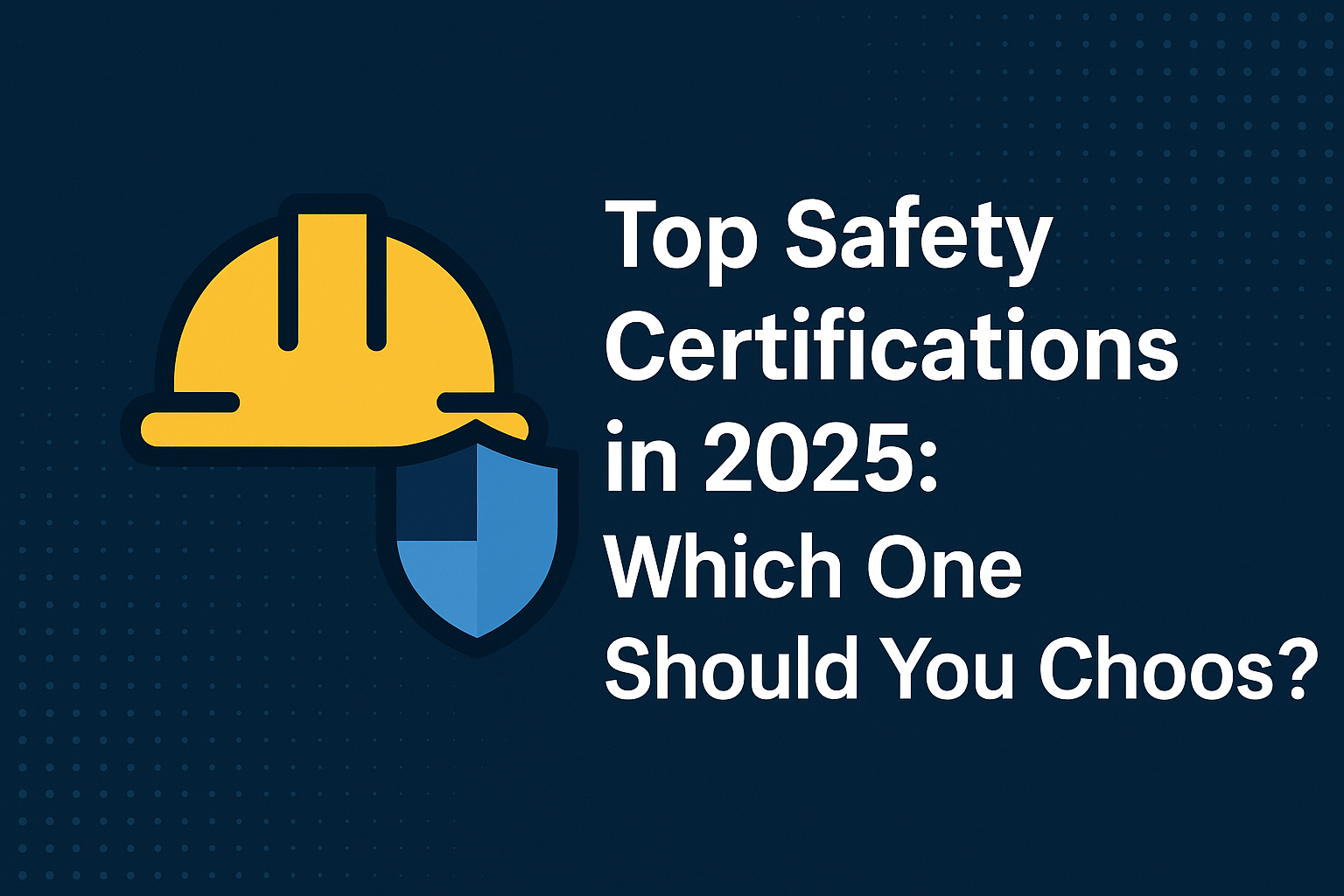
Safety Management Course Details: Ensuring a Secure Future
Safety Management Course Details : In today’s fast-paced world, ensuring safety in every aspect of our lives is of paramount importance. Whether it’s at home, work, or in public spaces, a comprehensive understanding of safety management is crucial. This article will delve into the details of Safety Management Courses, shedding light on their significance, curriculum, benefits, and much more.
Introduction
Safety management is not merely a buzzword but a critical aspect of our lives. It encompasses strategies and practices to prevent accidents, injuries, and disasters. To gain a comprehensive understanding, individuals can opt for Safety Management Courses, which provide them with the necessary knowledge and skills to ensure safety in various settings.
What Is Safety Management?
Safety management involves the systematic identification, assessment, and mitigation of risks to ensure a safe environment. It encompasses various aspects such as creating safety policies, conducting risk assessments, and implementing safety measures to protect people, property, and the environment.
Importance of Safety Management Courses
1. Enhancing Safety Awareness
Safety Management Courses educate individuals about potential hazards and safety protocols. This knowledge empowers them to identify risks and take appropriate precautions, both at home and in the workplace.
2. Career Advancement
Professionals who have completed safety management courses are highly sought after by employers. These courses can open doors to better job opportunities and career growth.
3. Legal Compliance
In many industries, compliance with safety regulations is mandatory. Safety management courses help individuals and organizations adhere to these regulations, avoiding legal issues and fines.
4. Risk Reduction
By learning how to assess and mitigate risks effectively, individuals can contribute to reducing accidents and incidents, ultimately saving lives and resources.
Course Curriculum
Safety Management Courses typically cover a wide range of topics, ensuring that students are well-equipped to handle safety challenges. Some key areas of the curriculum include:
1. Understanding Safety Regulations
Students learn about local and international safety regulations, gaining insights into the legal framework that governs safety practices.
2. Risk Assessment and Analysis
Risk assessment techniques are taught to identify potential hazards and assess their severity, enabling proactive risk management.
3. Emergency Response Planning
Preparation for emergencies is a crucial aspect. Students learn how to create comprehensive emergency response plans to protect lives and property.
4. Workplace Safety
Workplace safety is a top priority. Safety Management Courses delve into creating safe working environments and preventing workplace accidents.
Who Should Enroll?
Safety Management Courses are suitable for a wide range of individuals, including:
- Professionals in high-risk industries (construction, manufacturing, etc.).
- Safety officers and managers.
- Anyone interested in enhancing their safety knowledge.
Benefits of Safety Management Courses
1. Enhanced Safety Awareness
By the end of the course, students have a heightened awareness of potential risks and are better prepared to address them.
2. Career Advancement
Completing a safety management course can significantly boost your career prospects and earning potential.
3. Legal Compliance
Stay on the right side of the law by ensuring your organization complies with safety regulations.
4. Risk Reduction
Reducing risks in your personal and professional life is a priceless skill that can lead to safer environments.
Choosing the Right Safety Management Course
When selecting a safety management course, consider factors such as the course content, accreditation, and reviews from previous students. It’s essential to choose a course that aligns with your career goals and interests.
Duration and Cost
Safety Management Courses vary in duration and cost. Some are short-term, while others may span several months. The cost also depends on factors like the course provider and location.
Online vs. In-Person Courses
With the advent of online learning, you can choose between online and in-person safety management courses. Online courses offer flexibility, while in-person courses provide hands-on experience.
Certification
Upon successful completion of a safety management course, you’ll receive a certification that validates your expertise. This certification can open doors to a wide range of career opportunities.
Career Opportunities
Graduates of safety management courses can explore careers as safety managers, consultants, auditors, or risk assessors. The demand for safety professionals continues to grow in various industries.
Testimonials
Here are some testimonials from individuals who have completed safety management courses:
- “The safety management course gave me the knowledge and confidence to ensure the safety of my team in the construction industry.” – John D.
- “I landed a better job after getting certified in safety management. It’s been a game-changer for my career.” – Sarah P.
Conclusion
Safety Management Courses are a gateway to a safer and more secure future. They equip individuals with the knowledge and skills needed to protect themselves, their colleagues, and their communities from harm. By enrolling in a safety management course, you invest in a safer tomorrow.
Certificate IV in Work Health and Safety
ISO: International Organization for Standardization
ISO 45001:2018 Occupational Health & Safety Management
Frequently Asked Questions (FAQs)
- Are safety management courses only for professionals in high-risk industries?
- No, these courses are beneficial for anyone interested in safety, including homeowners and students.
- How long does it take to complete a safety management course?
- The duration varies, but some courses can be completed in a few weeks, while others may take several months.
- Are online safety management courses as effective as in-person courses?
- Yes, online courses can be just as effective, offering the flexibility of learning at your own pace.
- Do safety management courses require prior experience in safety?
- No, many courses are designed for beginners and do not require prior experience.
- What is the average cost of a safety management course?
- The cost varies, but you can find courses to fit different budgets, with some being more affordable than others.
























